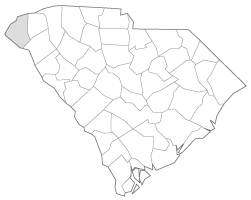Environmental Justice and Food Security: Considerations for Community-Engaged Emergency Response from South Carolina's Pilot Project, EJ Strong
What Happened

Environmental Justice Strong (EJ Strong) is an environmental justice and emergency response pilot project hosted by the South Carolina Department of Health and Environmental Control (SCDHEC), with funding support from the Environmental Protection Agency (EPA) and the State Environmental Justice Cooperative Agreement (SEJCA) Program. EJ Strong initiatives emphasize environmental justice through an emergency response and capacity assessment framework developed to address community risk and hazard mitigation during natural, agricultural, environmental, and human-made disasters. Community leaders implementing EJ Strong initiatives can modify the program to fit any geographic or situational need, which provides flexibility for those leading the community emergency planning and response. Many of the project's initiatives focus on addressing issues in North Charleston due to the large number of stressors and resources present in the community. However, the state of South Carolina has a diverse array of communities, many of which are rural. One key consideration for rural communities is the limited or lack of access to various essential services, including healthcare, COVID-19 testing and vaccinations, employment opportunities, healthy food options, and more.
During the COVID-19 pandemic, food security and availability became a challenge for rural communities in South Carolina due to labor and supply chain shortages. As restaurants and grocery stores closed and individuals lost their jobs, Clemson University developed a food map for rural areas, such as Oconee County. This website allows residents to locate and access community pantries, nonprofit food delivery organizations, and hot meal offerings in the area. By spotlighting places for community support, this collaboration promoted sustainability in emergency response through the lens of environmental justice. EJ Strong and Clemson University are working to expand this food mapping resource to other food-insecure communities in South Carolina. EJ Strong hopes to create a sustainable network that connects local food producers to individuals in need across the state by formalizing this process. EJ Strong also hopes to navigate issues along the rural-urban divide by empowering communities to define risk by whether or not a community has the resources and training to respond to disasters. By reframing risk as an issue of capacity rather than as an issue of identity, EJ Strong hopes to encourage communities to enhance their ability to prepare for and rebuild from disasters.
See EJ Strong's Capacity Assessment Mini Workshop guide for more information on conducting community-based disaster risk reduction, response, and recovery-focused capacity assessments.
Person(s) Interviewed
Keisha Long, Environmental Justice Coordinator
Office of Environmental Affairs, South Carolina Department of Health and Environmental Control
Opinions expressed are those of the interviewee(s) and do not necessarily reflect the views of the Rural Health Information Hub.
